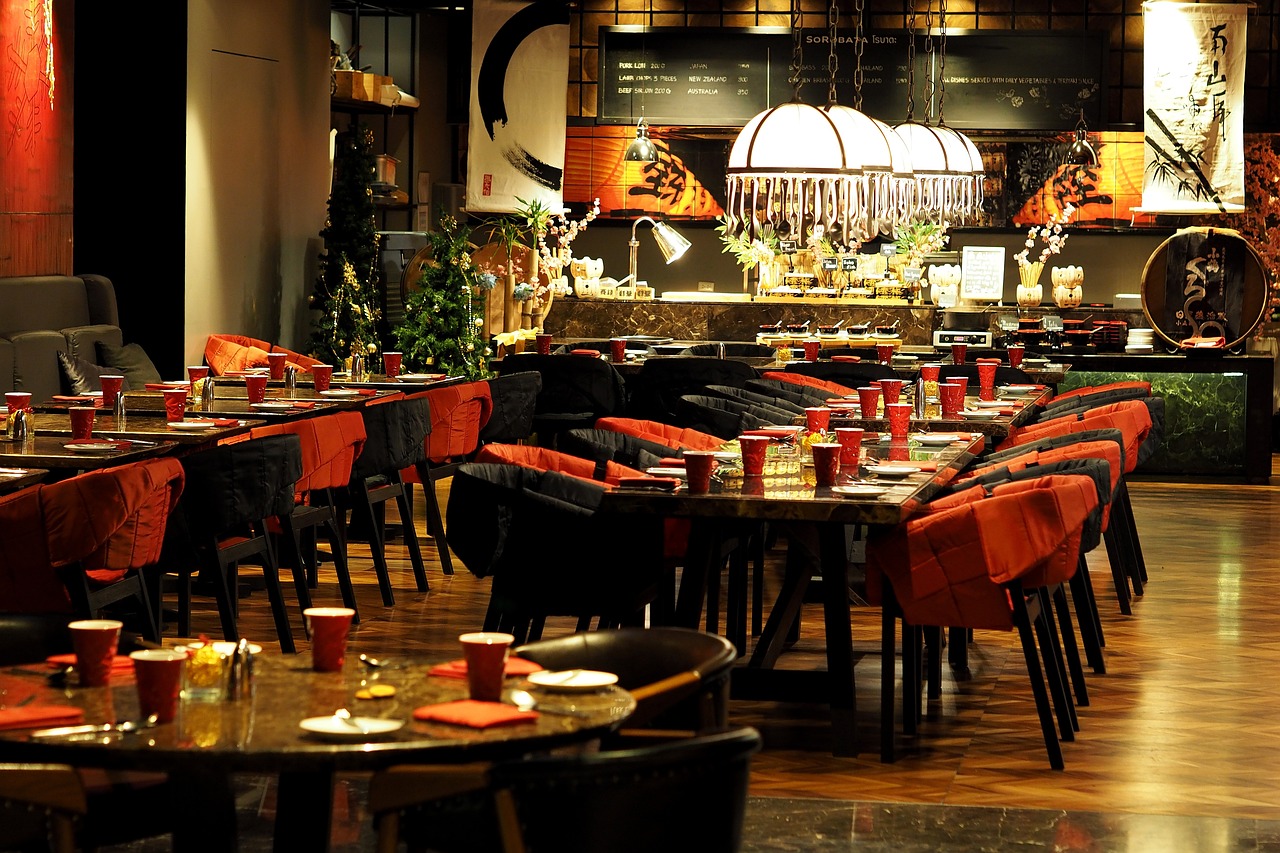What Are The Duties And Responsibilities Of A Restaurant Manager?
The role of a restaurant manager is indispensable for guaranteeing the efficient and prosperous functioning of a dining establishment. Restaurant management has its own set of challenges. It is not just a job but a crucial contribution to the industry. From overseeing staff to managing finances, a restaurant manager’s responsibilities are vast and varied. This guide delves into the comprehensive duties of a restaurant manager, providing insights into the skills and knowledge required to excel in this demanding role.

What Is a Management Plan for a Restaurant?
A restaurant management plan is a strategic framework that defines the goals, objectives, and operational procedures necessary for running a successful restaurant. It covers a wide range of aspects, including menu development, marketing strategies, financial management, staffing, and customer service. A well-crafted management plan is crucial, but it’s also your secret weapon for ensuring that all elements of the restaurant work in harmony, ultimately leading to a thriving business.
Benefits of a Restaurant Management Plan
- Clear Direction: Provides a roadmap for achieving the restaurant’s goals.
- Efficient Operations: Streamlines processes to enhance productivity.
- Improved Financial Control: Assists in creating and adhering to budgets, as well as developing comprehensive financial plans.
- Enhanced Staff Performance: Establishes training and development programs.
- Better Customer Experience: Ensures consistent service quality and satisfaction.
Developing a Restaurant Management Plan
- Creating a management plan involves several key steps:
- Setting Goals and Objectives: Define what the restaurant aims to achieve.
- Operational Procedures: Outline day-to-day operations, including opening and closing protocols.
- Menu Planning: Decide on the dishes offered, considering costs, customer preferences, and seasonal availability.
- Marketing Strategies: Develop plans for attracting and retaining customers.
- Financial Management: Create budgets and forecasts to manage cash flow and expenses.
- Staff Management: Plan for recruitment, training, and scheduling.
- Customer Service: Establish standards for service quality and complaint resolution.

Understanding the Role of a Restaurant Manager
- The Importance of Restaurant Management in the Hospitality Industry
Effective restaurant management is not just about maintaining standards; it’s about setting the bar high in food service, customer satisfaction, and operational efficiency. A restaurant manager diligently ensures that every aspect of the restaurant, from the kitchen to the dining area, operates seamlessly, providing a wonderful experience for the guests. Their leadership and decision-making skills directly impact the restaurant’s reputation, profitability, and overall success.
Overview of a Restaurant Manager’s Key Responsibilities
A restaurant manager’s responsibilities can be broadly categorised into several key areas:
- Leadership and Staff Management
- Operations Management
- Financial Management
- Customer Service Excellence
- Marketing and Brand Management
- Technology and Innovation
Each of these areas plays a critical role in the day-to-day management and long-term success of the restaurant.
1. Leadership and Staff Management
Recruitment and Hiring
The recruitment process is the first step in building a competent and reliable team. A restaurant manager is responsible for:
- Screening and Interviewing Potential Employees: Selecting candidates with the right skills and attitude for the restaurant’s environment.
- Onboarding New Hires: Introducing new employees to the restaurant’s culture, policies, and procedures to ensure a smooth transition.
Training and Development
Continuous staff development is essential for maintaining high service standards:
- Implementing Training Programs: This involves developing comprehensive training modules that cover all aspects of the job, from food preparation to customer service. For instance, a training module for front-of-house staff could include sections on greeting customers, taking orders, and handling complaints.
- Continuous Staff Development and Mentorship: This is an ongoing process that helps enhance our employees’ skills, knowledge, and expertise. It includes regular training sessions, mentorship programs, growth opportunities and advancement within the company, all of which contribute to maintaining high service standards and customer satisfaction.
Scheduling and Shift Management
Effective scheduling is crucial to ensure that the restaurant is adequately staffed at all times:
- Creating Effective Staff Schedules: Balancing staff availability with the restaurant’s operational needs.
- Managing Overtime and Time-Off Requests: Ensuring fair distribution of work and preventing burnout.
Conflict Resolution
Maintaining a harmonious workplace is essential for smooth operations:
- Addressing Employee Disputes: Handling conflicts promptly and fairly to prevent disruptions.
- Maintaining Workplace Harmony: Fostering a positive work environment through open communication and team-building activities.

2. Operations Management
Daily Operations Oversight
A restaurant manager oversees the day-to-day operations, ensuring that everything runs smoothly:
- Opening and Closing Procedures: Ensuring that all tasks are completed to properly set up and close the restaurant.
- Ensuring Smooth Service Flow: Coordinating between the kitchen and front-of-house staff to deliver timely and efficient service.
Inventory Management
Managing inventory effectively is critical to controlling costs and ensuring the availability of menu items:
- Ordering and Stocking Supplies: Tracking Inventory and Managing Orders: Regularly monitoring stock levels, identifying low inventory, and placing orders to replenish supplies as necessary.
- Managing Inventory Levels and Costs: Monitoring usage to avoid overstocking or shortages, thereby reducing waste.
Vendor Relations
Establishing and cultivating strong, mutually beneficial relationships with our suppliers ensures a continuous and dependable stream of high-quality product ingredients.
- Negotiating with Suppliers: Securing the best prices and terms for the restaurant.
- Ensuring Timely Deliveries: Coordinating with vendors to ensure supplies arrive on time.
Compliance and Safety
Restaurant management must prioritise compliance with health and safety regulations. It is crucial to prioritise and maintain a safe and secure environment for the well-being and confidence of both employees and customers. This commitment to safety is paramount and must never be taken lightly.
- Ensuring Health and Safety Standards: Regularly inspecting the restaurant to ensure compliance with local health codes.
- Compliance with Local Regulations: Staying informed about any modifications in laws and regulations that could impact the restaurant sector is essential for complying with local regulations.

3. Financial Management
Budgeting and Forecasting
A restaurant manager plays a crucial role in financial planning:
- Developing Financial Plans: Creating budgets that align with the restaurant’s goals.
- Forecasting Sales and Expenses: Predicting future financial performance based on historical data and market trends.
Cost Control
Controlling costs is vital for maintaining profitability:
- Managing Food and Labor Costs: Monitor expenses closely and find ways to reduce costs without compromising quality.
- Identifying and Reducing Waste: Implementing measures to minimise waste, such as portion control and inventory management.
Revenue Management
Maximising revenue is a crucial focus for restaurant managers:
- Pricing Strategies for Profit Maximization: Setting prices that reflect the value of the menu items while ensuring profitability.
- Monitoring Daily Sales and Revenue Reports: Monitoring Daily Sales and Revenue Reports involves regularly observing and analysing financial data to recognise patterns and pinpoint opportunities to enhance the business’s financial performance.
4. Customer Service Excellence
Customer Relationship Management
Establishing and maintaining strong customer connections through effective communication, personalised service, and attentive support is crucial for fostering loyalty and encouraging repeat business.
- Building and Maintaining Customer Loyalty: Creating loyalty programs and personalising customer interactions.
- Handling Complaints and Feedback: Addressing customer concerns promptly and effectively to maintain a positive reputation.
Service Quality Assurance
Ensuring that every customer has a great experience is a top priority:
- Monitoring Service Standards: Regularly reviewing service quality and making adjustments as needed.
- Implementing Customer Feedback for Improvement: Your restaurant will improve by analysing customer feedback to pinpoint areas for enhancement and executing the required changes to elevate the overall customer experience.
Event and Reservation Management
Managing events and reservations requires careful coordination:
- Coordinating Special Events and Large Parties: Ensuring that events are planned and executed smoothly.
- Managing Reservations and Seating Arrangements: Optimising table turnover while ensuring customer comfort.
11 Tips For Restaurant Managers That Will Make Your Life Easy
5. Marketing and Brand Management
Promotional Strategies
Marketing is essential for both attracting new customers and retaining existing ones:
- Planning and Executing Marketing Campaigns: Developing and launching promotions to boost business.
- Social Media and Online Presence Management: Engaging with customers online and maintaining a positive digital presence.
Brand Representation
Maintaining a consistent brand image is crucial for long-term success. This ensures the brand is consistently portrayed across all marketing materials, products, services, and customer interactions. Consistently portraying the restaurant brand helps to establish trust, solidify the bond between the brand and its audience, and enhance brand recognition.
- Upholding the Restaurant’s Brand Image: Ensuring that all aspects of the restaurant reflect the brand’s values and identity.
- Consistency in Marketing Materials and Communication: Ensuring that all promotional materials align with the brand’s message.
Community Engagement
Engaging with the local community is essential for strengthening the restaurant’s reputation and customer base. Building connections with residents, businesses, and organisations can leave organisations with reviews and loyal customers. Participating in local events, sponsoring charitable activities, collaborating with local suppliers, and partnering with nearby businesses can achieve this.
- Building Relationships with Local Communities: Participating in local events and supporting community initiatives.
- Participating in Local Events and Initiatives: Getting involved in the community to increase visibility and goodwill.
6. Technology and Innovation
Utilising Restaurant Management Software
Technology is increasingly important in modern restaurant management:
- Implementing POS Systems and Other Technologies: Using technology to streamline operations and improve service.
- Training Staff on New Technologies: Ensuring all staff members are comfortable using the latest tools and systems.
Data Analysis for Decision-Making
Data-driven decision-making can significantly improve operational efficiency:
- Analysing Sales Data and Trends: Using data to identify patterns and make informed decisions.
- Using Data for Operational Improvements: Implementing changes based on data analysis to enhance performance and profitability.
Related articles:
Restaurant Manager Salaries In The UK
Restaurant Management: What Every New Manager Needs To Know
Restaurant operations management
Conclusion
The responsibilities of a restaurant manager are constantly changing to meet the evolving demands of the industry and the expectations of customers. With technological advancements, increased competition, and changing customer preferences, restaurant managers must stay ahead of trends to ensure their establishments thrive.
The future of restaurant management will be shaped by sustainability, technology integration, and personalised customer experiences. Embracing these trends will position managers for success. In summary, a restaurant manager’s duties encompass leadership, operations, financial management, personalised service, marketing, and adopting new technologies. By mastering these areas, a manager can drive the restaurant’s success and create a positive experience for employees and customers.

Frequently Asked Questions (FAQs)
What Qualifications Are Needed to Become a Restaurant Manager?
Typically, a combination of education in hospitality or business management and hands-on experience in the restaurant industry is required.
How Does a Restaurant Manager Handle High-Stress Situations?
Effective stress management techniques include staying organised, delegating tasks, and maintaining calm during busy periods.
What Are the Most Common Challenges Faced by Restaurant Managers?
Challenges include:
- Managing staff turnover.
- Controlling costs.
- Ensuring consistent, organised quality.
- Adapting to industry changes.
How Can a Restaurant Manager Improve Customer Satisfaction?
Focusing on personalised service, addressing feedback promptly, and consistently delivering high-quality food and service are vital to improving customer satisfaction.
What Role Does a Restaurant Manager Play in Financial Success?
A restaurant manager impacts financial success through budgeting, cost control, pricing strategies, and revenue management.
5 Simple But Powerful Restaurant Management Goals For Your Success


